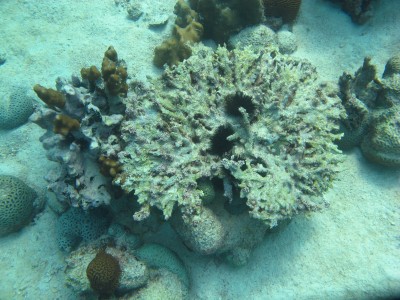NSU Newsroom
SharkBytes
Horizons
This version of NSU News has been archived as of February 28, 2019. To search through archived articles, visit nova.edu/search. To access the new version of NSU News, visit news.nova.edu.
This version of SharkBytes has been archived as of February 28, 2019. To search through archived articles, visit nova.edu/search. To access the new version of SharkBytes, visit sharkbytes.nova.edu.
NSU Research Spotlight: Halmos College Researchers Predict Timing of Coral Extinction
In March 2018, Halmos College faculty members Bernhard Riegl, Ph.D. and Matthew Johnston, Ph.D. in collaboration with two outside researchers published the journal article, “Population collapse dynamics in Acropora downingi, an Arabian/Persian Gulf ecosystem-engineering coral, linked to rising temperature” in the high impact journal Global Change Biology. The article precisely quantifies the conditions at which a key Indian Ocean coral species will go extinct. The species is important because it is one of the main contributors to the build-up of reefs in the Persian Gulf – a so-called ecosystem engineer. The main cause for the species’ decline was identified as increasingly frequent and strong heat anomalies – the Arabian region has one of the clearest climate-change footprints on Earth.
Lead-author Dr. Riegl used data from his 23 years of work in the region to develop a detailed demographic model of the species’ population dynamics. Johnston built a sophisticated biophysical model that allowed to predict how larval dispersal would change in different climate-change scenarios. This computationally-intensive, highly quantitative approach is also a hallmark of the Halmos College M.S. in Marine Science curriculum – which prides itself of its quantitative rigor and the wide spectrum of techniques offered to its students.
To read more, click here.
